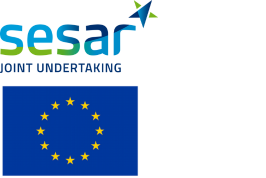- Next-generation Open-Source Tools for ATM performance Modelling and Optimisation
- Consortium: CRIDA, Danmarks Tekniske Universitet, Nommon, ISA Software, Universitat Politècnica de Catalunya, University of Westminster.
- 2020 – 2022
- nostromo-h2020.eu

The project
In recent years, the question of how to assess the performance impact of new solutions at a system-wide level in terms of air traffic management (ATM) has arisen. The EU-funded NOSTROMO project aimed to develop new approaches to ATM performance modelling, combining model transparency, computational tractability, and ease of use. First, the project developed a methodology to build ATM performance metamodels. Second, this metamodelling methodology was developed thanks to open source metamodels based on microsimulation tools able to reproduce ATM performance at the European Civil Aviation Conference (ECAC) level. Lastly, a set of visual analytics tools were developed.
Goals
The NOSTROMO project was developed in an incremental approach towards the objectives, by evaluating and refining the proposed methodology in an iterative manner in the light of the results obtained in its specific applications. The specific objectives of the project were:
- Develop a methodology for the construction of ATM performance metamodels that approximate the behaviour of computationally expensive simulation models so as to allow a systematic and efficient exploration of the model input-output space and a robust handling of the uncertainty associated with the model predictions, by exploiting recent advances in the field of active learning.
- Develop a set of visual tools that facilitate the analysis, interpretation and communication of the results of the new performance metamodels.
- Implement and validate the proposed metamodelling methodology by developing metamodels of different state-of-the-art microsimulation tools able to reproduce ATM performance at ECAC level.
- Demonstrate and evaluate the maturity of the NOSTROMO approach and the capabilities of the newly developed toolset through a set of case studies addressing the performance assessment of SESAR Solutions at ECAC level to allow a comprehensive benchmarking against the performance modelling methodologies currently in use.

This project has received funding from the SESAR Joint Undertaking, under the European Union’s Horizon 2020 Research and Innovation Programme, under grant agreement Nº 892517.